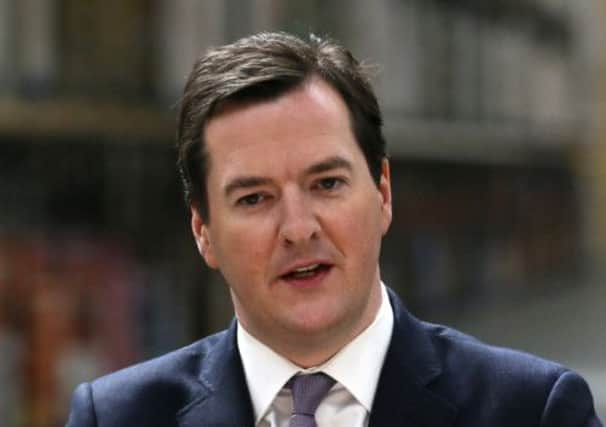Andrew Harrop and Rob Tinker: Labour must supply an alternative to austerity


As living standards continue to be squeezed, now, more than ever, the public demands competence. If Labour fails to restore its reputation as a safe custodian of the public finances the progress the party has made since the 2010 election defeat could quickly unravel.
Unsurprisingly this question of economic trust and competence is a matter of animated debate. Some have urged Labour to follow the budget plans laid out by the current Chancellor George Osborne.
Advertisement
Hide AdAdvertisement
Hide AdBy pledging to keep to the current spending limits beyond 2015, an incoming Chancellor would be forced to take tough decisions.
Once Labour’s reputation for economic stewardship was secure, the argument goes, a new government would enjoy public permission to invest in public services and other social goods.
This strategy is not new, of course. In 1997 Gordon Brown announced that for two years New Labour would match the tough spending plans of the previous Conservative government. Hamstrung by the popular image of “tax and spend”, this was an attempt to communicate that economic seriousness was a cornerstone of New Labour.
At times of uncertainty we inevitably look back at history as a guide. But for Labour to commit to the Government’s spending plans today would be a grave mistake.
Advertisement
Hide AdAdvertisement
Hide AdFor one, the economic picture is quite different compared to 16 years ago. When Labour came to power in 1997 the budget was in balance and the economy was steadily growing. The same cannot be said today. Recovery is nowhere to be seen and the only thing growing is a chorus of influential voices losing faith in the Government’s plan. The public senses that economic policy is being driven by politics, not the needs of the country.
If George Osborne’s three years at the Treasury tell us anything, it is that flexibility is a vital tool for any chancellor. By leaving himself too little room for manoeuvre, Osborne has been unable to relax his plans as the economic prognosis declined. Labour can’t shy away from the scale of the challenge that will exist in 2015 and many difficult choices will still need to be made.
But decisions should be made without the party first shackling itself to their predecessors’ restrictive plans.
To some this will sound like good economics but bad politics. By skilfully shifting the blame for our current situation on to Labour, the coalition has made the label of “reckless spenders” stick. But, with no economic growth, a squeeze on living standards and a private sector unwilling to invest, Labour cannot retreat into pessimism. Labour have rightly criticised the speed and depth of the Government’s austerity programme, now stretching to 2018 and perhaps beyond.
Advertisement
Hide AdAdvertisement
Hide AdBy accepting the broad shape of the coalition’s spending plans, the party would be forced to make cuts to public services with consequences it should find inconceivable.
What’s more, failure to propose a credible alternative would confirm the public’s worst suspicions of the political system today: there is little difference between its parties.
Labour’s spending plans have to provide an alternative to an austerity programme which is ever more out of step with economic reality. It must be one which begins with the principle of flexibility as a starting point for re-establishing economic health and delivering lasting growth.